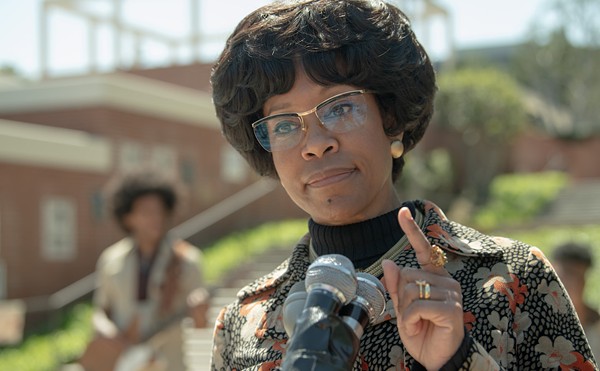As Penn reported last Sunday to the New York Times, he makes movies in which no good deed shall go unpunished; even the innocent will suffer, no matter how noble their intentions. Children are brutally murdered, and those who commit themselves to finding justice rarely stumble across satisfaction. There are only varying degrees of misery in Penn's films, which make them as real as your own skin. As a director, he is so obsessed with the details -- the change of seasons as indicated by flocks of migrating birds, the numbers on a license plate, the cries of turkeys being raised for slaughter -- that you don't just watch his movies. After a time, you live in them.
The Pledge is, in a way, the final installment in what might be considered his Trilogy of Anguish -- final only because there's no place to go but up from here. This time around, the suffering hero is a Reno, Nev., homicide detective named Jerry Black (Jack Nicholson) who, when we first see him, is howling mad, drunk and muttering to himself in the dust-swept ass-end of nowhere; he is a man at the end of the end -- or, perhaps, at the start of a new beginning. Moments later, he is on a frozen lake, ice-fishing with only a bottle of Glenfiddich for company. The jarring contrasts of the settings -- one arid, one frozen -- only heightens the obvious: No matter where he is, Jerry remains all alone.
Jerry is hours away from retirement, ending a career as a "great cop," in the words of fellow detective Stan Krolak (Aaron Eckhart). Jerry wants only to settle on the pond, where he can fish forever, but can't bring himself to even finish packing his office. He sits surrounded by pictures of himself as a young man -- all smiles, all promise -- but he stares at the black-and-white memories like a man who never lived up to his potential; he wanted to have done better, to have been better. That's why he skips out on his retirement party to answer a call: A little girl has been found in the snow-covered woods, sexually assaulted with her throat slit. He promises the little girl's mother (Patricia Clarkson) he will find her killer, swearing it on a cross made by the girl herself.
Stan insists the manhunt is over; he has his murderer, an Indian named Toby (Benicio Del Toro, almost unrecognizable beneath long, matted hair). Stan seduces a confession from Toby, who's so stunted mentally and emotionally he will own up to anything Stan puts in his empty head. Jerry doesn't believe Toby, who speaks the way one imagines a dog would sound if it could talk, but his superiors want him gone -- retired, out of the way forever. Even when presented with a pattern of two other similar, unsolved crimes, they turn their backs on their old pal; his old boss, Eric Pollack (Sam Shepard), wants nothing to do with Jerry's "hunch." As far as Eric and Stan are concerned, their old friend has become a drunk and a clown, not to be trusted any longer.
For a moment, all of this seems too familiar -- the retired cop who refuses to acknowledge he is past his prime and becomes determined to solve a closed case -- but this is no Lethal Weapon, and never does Jerry utter that he's become "too old for this shit." There is no glib resolution, no easy answer: Jerry's dedication to a promise made to a grieving mother becomes single-minded obsession, to the point where he buys a beat-up gas station from an old man (Harry Dean Stanton) located right in the middle of the triangle connecting the other crimes. For a while, he even tries to live a normal life, taking in an abused woman (Robin Wright Penn, looking gaunt and battered) and her daughter (Pauline Roberts). But the girl so much resembles the other three victims, she's almost their ghost made flesh and blood, and Jerry is not above using her as bait.
We soon wonder whether Jerry is motivated or merely mad; his brain spins with images and utterances laid out along the way like clues, if indeed there is a murderer still on the loose. The film, based on a 1958 novel by Friedrich Drrenmatt and adapted by Jerzy Kromolowski and wife Mary Olson-Kromolowski, suggests that the bogeyman lives only in Jerry's mind; in his eyes, everyone's guilty till proven innocent (even, perhaps, himself). The Pledge is not too unlike the films of M. Night Shyamalan: It presents itself so slowly that when the truth makes itself known, the audience is already vulnerable and is easily shattered by the revelation.
It's not hard to see why actors love working with Penn, even in the smallest roles. He lets them speak monologues even when they're saying nothing at all. A love scene between Nicholson and Wright Penn is shot entirely in closeup; we see their eyes, the way the dimness begins to flicker for only a moment. Helen Mirren, Vanessa Redgrave, Mickey Rourke and Michael O'Keefe show up for brief moments, and watching them interact with Nicholson is like watching McEnroe and Connors going at it during their prime. They give and take unselfishly; they're never more important than what they're saying ... or not saying.





